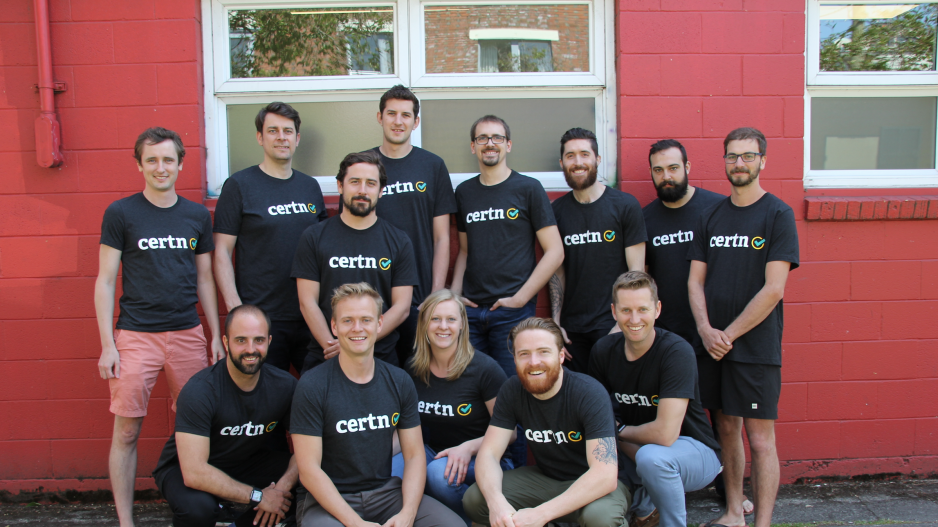Years ago, Andrew McLeod says, he and his co-founders set out to change the way organizations look at people.
And in 2019, with nearly 3.5 billion people on social media worldwide according to Hootsuite, there is a lot to look at.
“Most people party, let’s be honest. And that’s what most people are concerned about: ‘Are you going to be looking at my party photos?’” said McLeod, one of three CEOs – or “C3Os” – at Certn, a platform that allows employers to efficiently screen and evaluate prospective job applicants.
He said his company looks for risks to staff safety or a company’s reputation.
Certn scans only social media text, and not pictures.
In two and a half years, McLeod said, the Victoria-based startup of 15 has made a “big dent” in the Canadian market, and it is now looking to tackle secondary cities and underserved markets in the U.S.
His company offers between 500 and 600 clients of varying sizes white-label systems that can be customized to each client’s needs. For varying price points, a customer, such as Burnaby-based Traction on Demand, could use the platform’s artificial intelligence technology to analyze more than 200,000 sources of information across 240 countries and 77 languages.
The platform offers and integrates court records searches, motor vehicle records and police background checks. According to McLeod, many companies contract a background-check provider but do not have the ability to integrate those records into their hiring or human resources systems.
Certn also uses artificial intelligence to scan a candidate’s public social media accounts for high-risk behaviour, which may be flagged by Certn for an employer’s review.
“Many people have, through their footprints on the internet, provided a window into who they are, and it’s all in the public domain,” said Steve Cadigan, a newly appointed board member of Certn, founder of Cadigan Talent Ventures LLC and a former vice-president of talent at LinkedIn.
Social media has worked its way into the hiring process in a “massive” way, said Mike Shekhtman, regional vice-president of B.C. with Robert Half. Searches by managers are increasingly common.
“Employers are looking for those red flags and inconsistencies in representation,” Shekhtman said.
However, even if the information is publicly accessible, social media posts aren’t necessarily relevant to a job, nor accurate, and reviewing them can introduce potential human rights and privacy challenges.
“Pre-employment social media checks can run an employer into trouble,” said Preston Parsons, a lawyer with expertise in employment law at Overholt Law.
In B.C., viewing social media content falls under the jurisdiction of provincial privacy law, which Parsons said comes with an obligation to ensure the information being collected is accurate.
Gathering a large swath of information – which may include details about race, gender, religion and political affiliation – could potentially subject an employer to allegations that a decision not to hire someone violated a protected human right.
According to McLeod, Certn never assesses social media conduct; it simply flags racist or sexist behaviour, as an example.
It organizes searches that are often already being conducted in a less thorough way.
While novel, it’s just one way Certn has reimagined a hiring process Cadigan said hasn’t changed much, if at all, over the last 20 years.
For example, the company delivers the results of background checks to both a corporate client and job candidate, and creates an opportunity for the candidate to address any red flags.
“It doesn’t feel like you’re getting strip-searched – digitally strip-searched if you will,” Cadigan said.
The process is also fast.
As the company expands south, efficiency and speed in hiring remains as relevant as ever at home, where B.C. maintains Canada’s lowest unemployment rate.
“Speed to market is critical,” said Shekhtman. “I think many managers are facing issues where they’re not making quick enough decisions, and they’re losing candidates.”




